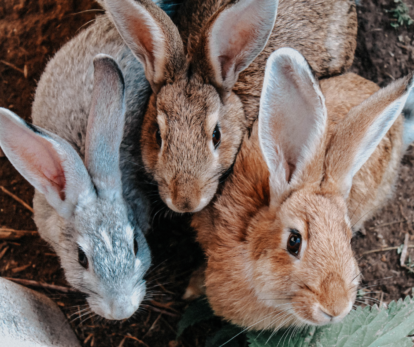Humane education: Replacing animal models in schools and universities


As predicted, the Labour Party won the UK General Election 2024 with a whopping 412 seats. What does this mean for our fellow animals?
In Labour’s manifesto, Change, the chapter entitled Make Britain a clean energy superpower details the party’s position on energy system reform, the Warm Homes plan, accelerating to net zero, protecting nature, clean water, supporting British farmers, and stronger animal welfare.
It’s this last section that is of particular interest to those of us concerned with animal freedom. In it, the manifesto states:
“Labour will improve animal welfare. We will ban trail hunting and the import of hunting trophies. We will end puppy smuggling and farming, along with the use of snare traps. And we will partner with scientists, industry, and civil society as we work towards the phasing out of animal testing.”
Under the Supporting British farmers heading, it also promises:
“we will work with farmers and scientists on measures to eradicate Bovine TB, protecting livelihoods, so that we can end the ineffective badger cull.”
Although not mentioned in Labour’s manifesto, various party members have pledged that Labour will ban foie gras products.
The Labour Animal Welfare Society (LAWS) has also said that Labour will ban the sale of animals with cropped ears, and prohibit importation of dogs and cats with fashion-based mutilations, such as cropped ears or docked tails. It also expects the party to ban the transportation of heavily pregnant dogs and cats.
Let’s explore some of the key issues individually.
The previous Labour government introduced the Hunting Act of 2004, which made it illegal to hunt free-living mammals using dogs. This included a ban on fox hunting in England and Wales (in Scotland, the chasing and killing of animals is banned under the Protection of Wild Mammals Act 2002).
However, loopholes in the ban have allowed hunts to continue using packs of dogs to chase and kill wildlife such as foxes, stags, and hares.
One such loophole is trail hunting, which involves the hunt organisers laying a scent trail (usually using fox urine) for a pack of hounds and hunters on horseback to follow. Trail hunts are often conducted on land where foxes and hares are likely to be (indeed, land where fox hunts had previously been run). If the pack picks up the scent of a live animal, they may end up chasing and killing that animal rather than following the laid trail. The hunt organisers will then claim that the pack accidentally followed the wrong scent.
In 2021, Mark Hankinson, then Director of the Masters of Foxhounds Association, was found guilty under the Serious Crime Act 2007 of using a private webinar to tell members how they could use trail hunting as a ‘smokescreen’ for fox hunting. His appeal against his sentence for teaching hunts how to break the law was upheld in 2022.
The League Against Cruel Sports warn that trail hunting is not a genuine sport, but a cover for illegal hunting.
Several high-profile Conservatives are pro-hunting. Protect the Wild mentions Jacob Rees-Mogg, Simon Hart, Bill Wiggin, Michelle Donelan, Richard Drax, and Liz Truss as influential figures in the hunting community who wanted to repeal the hunting ban and have allowed trail hunting to continue.
Hopefully, the Labour party will use its definitive majority to implement its commitment to ban trail hunting.
As we saw above, the Labour manifesto says the party will ban the import of hunting trophies.
LAWS says Labour will “bring back the Hunting Trophies Bill in full, banning the import of ‘trophies’ taken from the body parts of slaughtered endangered animals such as elephants, lions, bears and hippos, and instead work with affected countries to strengthen conservation”.
The pledge to ban hunting trophies has attracted long-standing interest and generally has cross-party support. Most recently, the ‘Hunting Trophies (Import Prohibition) Bill’ fell at the last hurdle, when it was blocked from passing by 11 Peers in the House of Lords.
Former Labour MP, John Spellar, submitted an identical Private Members bill, which passed its second reading in March 2024. Unfortunately, the bill did not come into force before the General Election.
Our hope is that it will finally come into force during the new parliamentary session.
According to The Guardian newspaper, Labour’s campaign petition to end puppy farming and smuggling was the second most popular petition after that calling for measures to stop raw sewage being dumped in Britain’s waterways.
Indeed, many felt this could be a deciding factor for swing voters in marginal seats.
Labour has faced accusations of cynically using this cause to tarnish the Conservative party’s reputation and to present Labour as a “caring and compassionate party”.
More optimistically, organisations such as World Animal Protection are hopeful that Labour will reinstate the Kept Animals Bill, which was rejected by the Conservative government in 2023 (primarily because of concerns that Labour would widen the scope to include hunting).
This bill sought to end puppy farming and smuggling, as well as to stop the importation of young, heavily pregnant, or mutilated dogs. It also aimed to ban the export of live farmed animals for fattening and slaughter and promised to tighten zoo regulations.
LAWS states that Labour intends to “bring back the Kept Animal Bill provisions in full”.
“When talking to the public about snares, most think they are already illegal.”
This is the conclusion of an animal activist called Doug Maw, who was recently found not guilty of nine charges of freeing animals from traps and snares on land owned by the Duke of Norfolk.
Maw published video footage on Instagram of a screaming, traumatised hare trapped in a snare. The judge dismissed the charges, recognising that no jury would condemn Maw for acting to stop such intense suffering.
However, snares are legal in England, Northern Ireland, and, for now at least, Scotland. They were banned in Wales in 2023. The UK (minus Wales) is one of just five countries in Europe that still allows the use of these barbaric devices.
In case you haven’t seen one – and they’re often used on private land, away from the public gaze –, a snare trap is a thin wire noose designed to tighten around the neck or leg of an animal and hold them in place until a gamekeeper can kill them. They are officially used to capture foxes or rabbits but are indiscriminate about who they trap.
An animal caught in a snare trap will often die by strangulation due to the noose tightening in response to their struggle to escape. In addition, snares can cause deep lacerations around the neck or a limb or even result in amputation. In cases where the snare does not directly cause a fatal injury, our fellow animals may still die due to predation, stress, or dehydration.
Any living being caught in a snare trap will experience indescribable pain and suffering.
Various consultations, reviews, petitions, and debates have called for a total ban on snare traps in the past, without success. According to the League Against Cruel Sports, 77% of the public supports a blanket ban on snare traps, as do 66% of MPs.
Since 2013, more than 230,000 badgers have been slaughtered under what the Badger Trust describes as “misguided and fundamentally flawed attempts to control bovine Tuberculosis (bTB)”, an infectious respiratory disease that affects cows.
For many years, the farming community has wrongly believed that badgers are a significant factor in the spread of the disease. However, scientific evidence shows that 94% of transmissions happen from cow to cow, and that badger culls make no difference in reducing cases of bTB.
The Badger Trust warns that culls have decimated the UK’s badger population by approximately 50%. In some areas of England, those tasked with culling can no longer find badgers to kill.
This isn’t the first time that the culling of badgers has been in the parliamentary spotlight. In 2020, the UK government announced plans to phase out intensive badger culling in favour of increased badger vaccination and “cattle measures” (i.e. control of movement), following a review by Professor Sir Charles Godfray in 2018. However, this phase-out never happened.
Disappointingly, Steve Reed, Labour’s Defra lead, announced a few days before the election that Labour planned to allow pre-existing cull licences, many of which run up until 2026, to continue. This represents a further 30,000 badgers who will be slaughtered before a full end to the cull might be implemented.
The Badger Trust believes these culls may lead to further local extinctions, removing badgers from some UK ecosystems for the first time in 250,000 years.
That Labour described the culls as “ineffective” in its manifesto is key. It’s a public acknowledgment that badger culls do not prevent bTB, in which case any licenses may directly breach Section 10 (2) of the Protection of Badgers Act 1992. Organisations such as the Badger Trust are exploring whether this is a legal avenue through which to stop the culls with immediate effect.
The Labour Party and Green Party manifestos were the only ones specifically mentioning phasing out or ending animal testing.
Home Office stats show that approximately 2.7 million of our living fellow animals were used in experimental procedures in 2022. Ten percent of these tests are required by regulators to show the safety of chemicals, medicines, and other products.
Cruelty Free International has welcomed the new government’s manifesto promise to partner with scientists, industry, and civil society to end the use of our animal kin in UK laboratories.
The organisation says over 14,000 people contacted their MPs in the run-up to the election to support a ban on animal testing, and 307 parliamentary candidates pledged to “outlaw testing cosmetics on animals” and to “modernise chemicals testing for household products and deliver a government-led plan to target zero tests on animals.”
Many people feel strongly about this issue, and Cruelty Free International says it hopes Labour’s action plan in this area will become clearer during the King’s Speech on Wednesday 17th July, which will set out Sir Keir Starmer’s legislative agenda for government and priorities for the next parliamentary session.
The new government has considerable challenges ahead and will be under intense pressure to act on a wide range of issues, including the cost-of-living crisis, restoring public services and the NHS, the genocide in Gaza, the ecological crisis, and more.
It’s vital that we continue to lobby on behalf of our animal kin to ensure that Labour acts on the promises in its manifesto and that these issues remain in the spotlight.
Vote for Animals (organised and funded by Animal Aid) has asked politicians to lend their support to ten “Crackdown on Cruelty” pledges, five of which directly relate to Labour’s commitments as discussed above. To date, most of the Labour MPs have not responded with their position on these pledges.
We can contact our MPs to highlight why the pledges matter and ask for their commitment to implement them. We can also support the organisations campaigning on these issues; the Votes for Animals website includes a comprehensive list as a starting point.
You can explore your MP’s voting history at TheyWorkForYou to discover whether your local representative has previously voted for or against certain bills. This website will also give you contact details to write to your MP to express your concerns about the issues above.
As Born Free reports, “Previous Labour administrations have a legacy of introducing important animal protection legislation” – the Hunting Act of 2004 and the Animal Welfare Act 2006 were both welcomed when they came into force.
Our hope is that the new government will follow through with its manifesto promises. We must collectively remind them at every opportunity that we expect meaningful actions to back up the words spoken on the campaign trail.
Labour promised change. We’re ready for it.